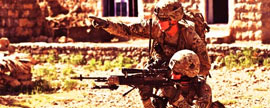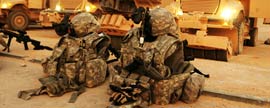Usually this means one of two things.
1. There is a legal problem with the way the police force handled the incident and he cannot be charged.
or
2. A Soldier cannot receive double jeopardy with regard to DUI. Meaning if he is punished off post for a DUI he cannot receive an Article 15 for the DUI. So if the local police are handling the issue the military cannot do anything.
If the DUI is off post normally the Soldier will receive a GOMOR, which is an administrative action, for the DUI. A DUI, on or off post, qualifies for separation under chapter 14-12c, AR 635-200, “Commission of a serious offense “Separation for one DUI is not required but is an option for the command. This is looked at if the Soldier has other misconduct in the past or is generally a mediocre performer. If a Soldier has two DUIs in a career then separation must be processed to the separation authority who will determine if the soldier is separated or not.
See AR 600-85 and AR 635-200 for specific informatioin
Did you find this information useful? We appreciate your feedback!














Comments
Michael Hasbun
This does not preclude the DUI being mention in an NCOER/OER if found guilty by civilain courts however. He will still have repercussions..
SGT NICK
Since chapter initiation happens as soon as you come back to work following the DUI, a bad bullet on a NCOER/OER is rather pointless.
Mark Gerecht
Nick,
Does it automatically happen? I did not know that AR 600-85, AR 600-20, or AR 635-200 directed that. If it does can you send me the reference? Would like to have that. I can see if being a local policy but was not aware it was Army Policy.
thanks
TOP
sgt nick
Army Directive 2012-07 – Administrative Processing for Separation of Soldiers for Alcohol or Other Drug Abuse.
as soon as someone gets a dui we “v” flag them and initiate chapter. Regardless if they beat this in court down the road the chapter is very fast. At first coc’s were shooting for oth discharges depending if the dui included other crazy things like eluding police, injuring others or property. That didn’t last long because that discharge gives them the opportunity to have a hearing and a lawyer dragging out the process. Now its just general discharges based off the initial police report alone. This is the same for any offence you commit that is alcohol related. ASAP is another super fast chapter with better outcomes as commanders are initiating honorable chapters as soon as someone self refers. Its pretty harsh right now for anyone with a drinking or drug problem.
Eck
The Army Directive SGT Nick refers to, (2012-07) in regards to alcohol offenses states: para 3b, “Except for Soldiers referred to a court-martial authorized to impose a punitive discharge, commanders will process for separation all Soldiers who are:
(2) Involved in two serious incidents of alcohol-related misconduct within a 12-month period. As defined in AR 600-85, a serious incident of alcohol-related misconduct is any offense of a civil or military nature that is punishable under the Uniform Code of Military Justice by confinement for a term exceeding 1 year.
and
(5) Convicted of driving while intoxicated OR driving under the influence a second time during his/her career.
The key point to subparagraph 5 is that it has to be two “convictions” during a career that require mandatory separation action.
However, it does not preclude the unit from initiating separation action at the commanders discretion for just one DUI. As SGT Nick referred to, during this time of downsizing, units are not overlooking alcohol misconduct. As long as the unit has evidence to substantiate a DUI charge, they can separate without a conviction.
One other point to remember, a DUI qualifies for a Serious Misconduct (14-12c)chapter which impacts not only your ability to return to the military at a later time and a rehabilitation transfer is not required prior to separation.
The directive also establishes retention authority for Soldiers who commanders wish to retain on a mandatory separation action.
It also covers some other issues in regards to drug use and flags. It is a highly recommended read for all Soldiers, especially those in leadership positions.
The directive will be incorporated into the next updates of the pertinent regulations that it affects.
I have forwarded a copy of this Army Directive to CSM Gerecht for inclusion in the Arms Room.